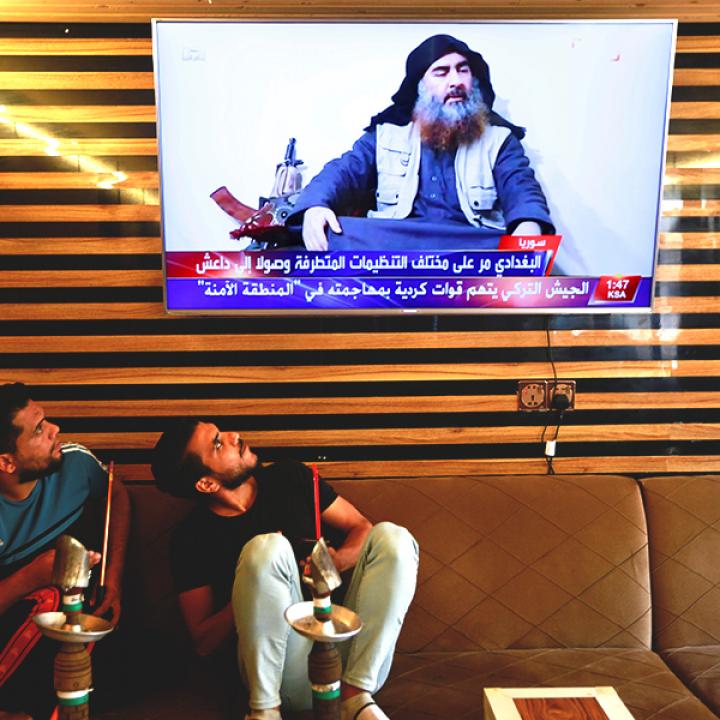

The Islamic State no longer governs territory, but aspiring jihadists can now point to a caliphate project achieved in their lifetime, a long-held yearning of the international movement.
Abu Bakr al-Baghdadi was never able to match the spectacle of al Qaeda’s 9/11 attack, but his legacy as a jihadi may equal or outshine Osama bin Laden’s. In spring 2010, he became the leader of what was then called the Islamic State of Iraq, after 34 of its top 42 leaders had been killed or captured. Over the next several years, under Baghdadi’s leadership, the group became the most important jihadi organization in the world, surpassing its former partner al Qaeda.
His influence surged in late June 2014, when the group’s official spokesperson, Abu Muhammad al-Adnani, announced that it had resurrected the caliphate. It was a goal that the international jihadi movement had aimed to achieve since its inception decades ago. Baghdadi managed to turn that dream into reality. It’s an achievement that will inspire future jihadis for generations—likely more than the accomplishments of any of his jihadi contemporaries. Would-be jihadis can now point to a caliphate project that was achieved in their lifetimes.
Soon after Abu Bakr al-Baghdadi ascended to become the leader of the Islamic State of Iraq in 2010, he continued the organizational ethos of his predecessor, Abu Omar al-Baghdadi, by not being omnipresent in its propaganda. This contrasts with the synonymy between bin Laden and the al Qaeda brand. In the nine and a half years that Abu Bakr al-Baghdadi was the leader of the Islamic State of Iraq and then later the Islamic State of Iraq and al-Sham and the Islamic State, he only appeared twice on camera. The first was in July 2014, when he accepted the role as caliph. The second was more recently—this April, following the Islamic State’s loss of territory—to show that he was still involved in the day-to-day leadership of the organization. In total, he only issued 14 public messages. This all served the Islamic State movement’s idealism—the sense that it is singularly committed to its ideas, above all the caliphate project...
Foreign Policy



